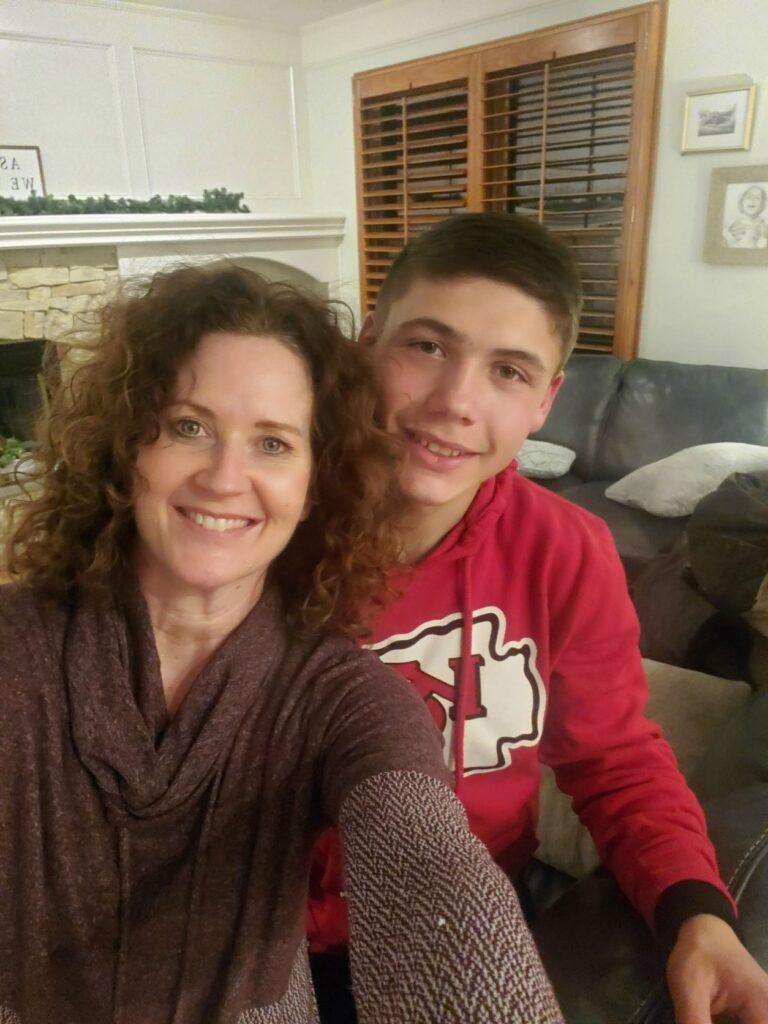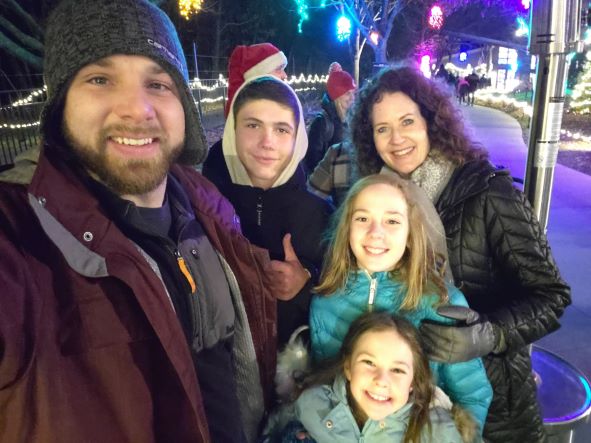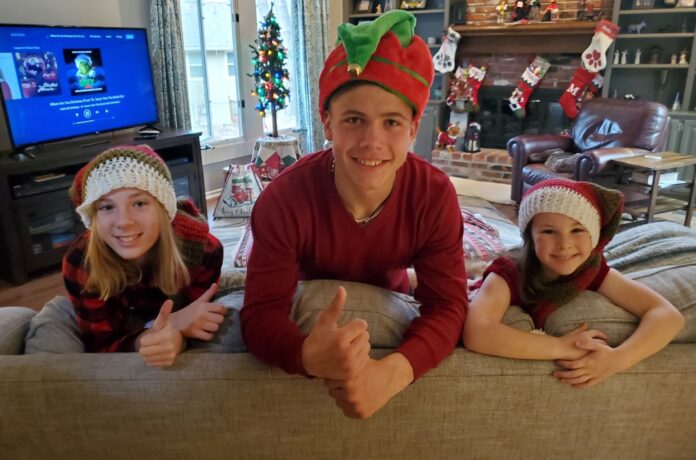By Sarah Wall
After just seven days, the crisis in Ukraine has already left countless victims—Ukrainians killed or wounded in action; homes and storefronts destroyed by missiles; peace in Europe shattered for the first time since 1948. These stories have dominated headlines over the past week, but less discussed—and just as important—are the hundreds of orphaned Ukrainian children and their would-be adoptive parents who have been lurched into uncertainty.

Jessica and Matt Pflumm are two of these parents. Together with their two daughters, they have been moving through the process of bringing a teenage Ukrainian boy, Max, home to the United States. They connected with Max through orphan hosting for an organization called New Horizons for Children, which places orphans from Eastern Europe in American homes. “This past hosting season we chose Max, who was our first hosting from Ukraine,” Jessica explains.
As soon as Jessica saw his picture, she was immediately drawn to Max. “He just had a sweet look on his face, and the notes said he was a math scholar. I thought that was so interesting: after a hard life, he was such an accelerated student.”
The family’s feeling that Max belonged with them solidified over the four weeks he spent with them from December to January. Remarkably, they connected with him despite a significant language barrier. “He doesn’t speak English,” Jessica says, “so all our communication was done through a hand-held device.”
But Jessica, Matt, and their daughters are proof that family is about much more than language. “Part of the hosting experience is for these kids to be able to experience life and love in a family,” Jessica explains. “Our time with him was wonderful. He was just so curious,” she continues. “We had to teach him how to throw a baseball, swing a bat—things he had never experienced before. Things that we take for granted are things he’ll remember for the rest of his life.”
Before Max returned to Ukraine, Jessica and Matt had already decided they wanted to move forward with adoption, which meant a lot of paperwork. After finishing a weeks-long home study, the couple had just moved onto the dossier process, which would go to the adoption agency and be translated for the embassy, when Russia’s invasion began. “With the embassies closed in Kyiv, there’s no processing of documents—there’s really nothing happening,” she says.
By way of a true miracle, though, they can stay in touch. Because the adoption process had already begun, the agency allowed them to purchase a phone for him. “We waited six weeks for it to get there,” she recalls, “and it arrived the day of the invasion. Only God could orchestrate that.”
With the country in crisis, they call Max daily. “Ukraine is eight hours ahead, so my husband takes 10 PM to 2 AM, and I take 2 AM to 6 AM,” she says. “We keep him on the phone, connected with us, to see how he’s doing—just keep him mentally engaged.”
Jessica and Matt are also working to raise awareness. “We’re not the only family in this situation,” she says. “All over the U.S., there are families trying to adopt from Ukraine. If the U.S. State Department could pressure the Ukrainian government to evacuate the orphanages and let them cross the border, they could probably reinitiate the adoption process.”

Jessica and Matt also launched a fundraiser through Give Send Go to help orphaned Ukrainian children evacuate. “If you think about orphans that are in remote locations, they don’t have buses; they don’t have cars; they can’t just walk to the border—some of these kids are 500 miles from Poland or Moldova,” Jessica explains. “We’ve started the fundraiser to—whether it’s through us or through other organizations on the ground—try to help kids evacuate.”
If you feel called to support the Pflumm family’s efforts to evacuate Max and orphans like him from Ukraine, you can visit their Give Send Go fundraiser, and ask your representatives to tell the State Department to pressure the Ukrainian government to evacuate the orphanages. Most importantly, the Pflumms ask that you pray.
To Jessica, the war in Ukraine is about more than foreign policy, the heroic resistance of the Ukrainian people, or the suffering of millions driven from their homes. Now it’s about her family—her son. “I think a lot of times, people think of orphans as something they don’t know or see, so they feel sorry for them at a distance,” she reflects. “But once you have an orphan in your home, you realize these kids are just like your own kids. They want and deserve love just like any other kid. And yes, it might be a little harder, but they deserve that chance just like anybody else.”










